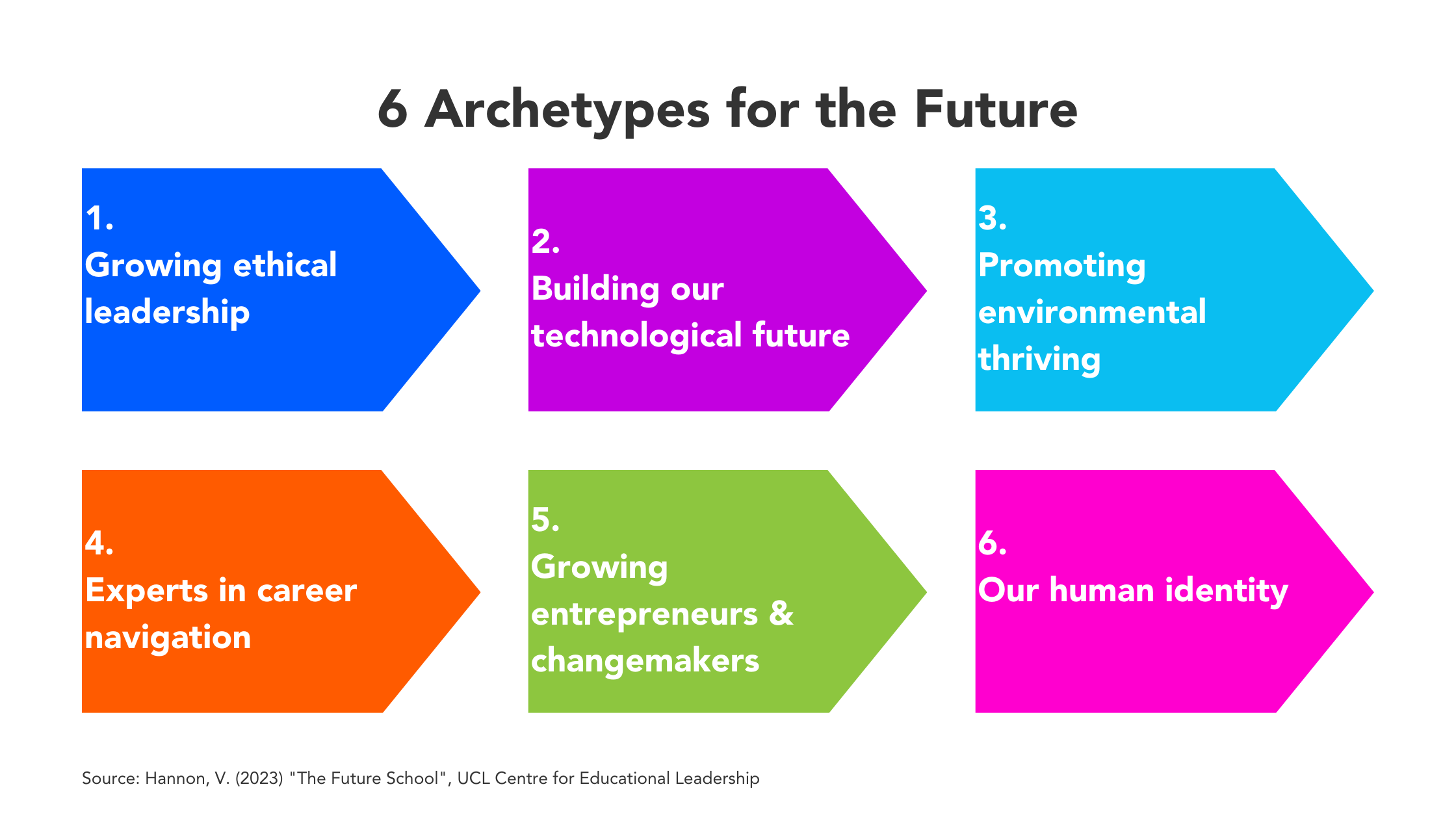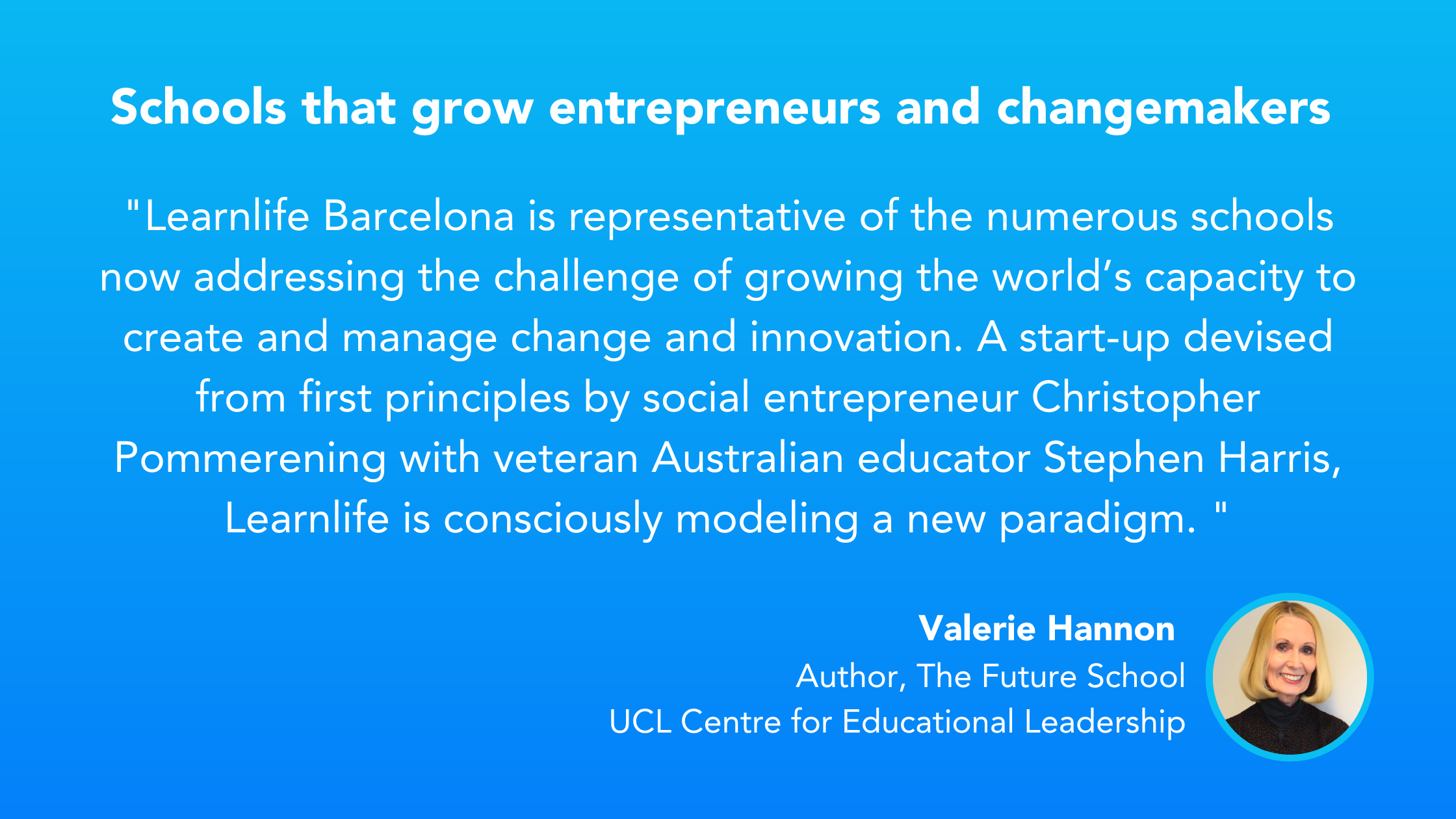Valerie Hannon argues in her UCL Centre for Educational Leadership (CEL) thinkpiece that the COVID-19 pandemic has led to a resurgence in the idea that the traditional institution of school is no longer necessary and that edtech could replace it. However, Hannon believes that, instead of being consigned to the past, schools should be redesigned to meet the needs of the future. So what are these needs?
Future schools as hubs for social development
The pandemic has revealed that the social function of schools is critical and that schools are a vital component in fostering the well-being of young people. Learning is a fundamentally social process, and schools should not be conceived as just a place for knowledge transmission or skill acquisition. Instead, schools should be redesigned to become a site of various community-oriented services and facilities, generating local "social capital" and becoming the ground where more vibrant forms of democracy might take root.
The author suggests using futures thinking to explore the nature of the future school. They identified design principles for creating schools fit for the future and looked at schools worldwide that use these principles. Patterns emerged, which the author called 'archetypes.' They reviewed 23 global organizations intentionally employing futures thinking as tools to support policy, identifying discernible trends and disruptions that impact life on Earth. Schools need to shape up to these realities, including our relationship with the environment, social and political life, technology, and human development.
The characteristics of a future school
The study identified three clusters of design principles: values, operational philosophy, and the learner's experience. The values cluster includes principles such as purpose-driven, equity-focused, and promoting identity. The operational philosophy cluster includes principles such as learning-focused, flexible/dynamic, technology-enhanced, and ecosystemic. The learner's experience cluster includes principles such as personalized, integrated, inclusive, relational, and empowering. The study found that schools that intentionally focus on being future-fit start with fundamental questions about human learning and adopt design principles to come up with different kinds of solutions.
The article discusses the 14 principles for designing future schools, which fall into three clusters: values, operational philosophy, and learners' experience. As the database of schools utilizing these principles grew, a pattern emerged of schools addressing global challenges in addition to their mission for their students. Six archetypes emerged: Growing Ethical Leadership, Building your technological Future, Promoting environmental thriving, Experts in Career Navigation, Growing Entrepreneurs and Changemakers, and Our Human Identity.

Those familiar with Learnlife will doubtless see that we closely support a number of these themes, but the article does emphasise that no school is only about one archetype and that the principles are the ingredients, not a recipe.
The first archetype is schools focused on growing ethical leadership, exemplified by the Liger Leadership Academy in Cambodia. The school's curriculum is built around the principles of purpose and empowerment, with a focus on creating leaders who possess competence and values. The second archetype is schools focused on building our technological future, represented by schools such as the Kosen Schools in Japan and Chung Nam Samsung Academy in Korea. These schools aim to create students who are technologically competent and confident while also possessing humanistic values.
The third archetype is schools emphasising environmental thriving, represented by the Green School in Indonesia, which aims to educate for sustainability through community-integrated, entrepreneurial learning. The other archetypes include schools focused on career navigation, growing entrepreneurs and changemakers, and exploring our human identity. These archetypes reflect the need to address the leadership deficit, equip students with relevant skills for the future, and promote sustainability and environmental literacy.
Learnlife: a future school growing entrepreneurs and changemakers
LearnLife was included in the archetype of growing entrepreneurs and changemakers, as we help to develop our learners’ capacity to create and manage change and innovation. We were included as part of a rapidly growing field of entrepreneurship-focused schools, including Riverside School in Gujarat and Nuvu Studio in the US, that explicitly develop entrepreneurial competencies and the value frame that drives motivation to make change for the common good.
While we would not limit ourselves to being “entrepreneurship-focused”, this is most certainly in our DNA. Entrepreneurial skills are very much required to adapt to an uncertain future and thrive in a world that will require us to upskill, pivot, reflect, collaborate and adapt constantly.
The report highlighted our framework for the use of time in the learner's typical week, which includes five components: Connect, Create, Discover, Extend, and Reflect. The Connect component includes "Real talk" and "Movement" activities to create a safe space for sharing and foster physical wellness, respectively. The Create component involves studio-based creativity, multimedia space, and maker space. In the Discover component, learners explore museums, participate in the Adelante Programme for new skills, and undertake Passion Projects. The Extend component focuses on numeracy and literacy skills, understanding culture, and multilingual learning. Finally, the Reflect component helps learners develop self-awareness through 360-degree feedback and self-assessment.
Learnlife's practical impact is highlighted in its different way of using time and structuring the working week, and its emphasis on designing learning experiences that develop entrepreneurial competencies and foster the motivation to make change for the common good. This approach helps learners become proactive navigators of their future careers, able to cope with the fast-changing world of work and employment.

Many schools intentionally working to be future-fit are operating outside of traditional systems. While some schools in the public sector are using the design principles, too many are stuck in the old paradigm. The report underlines the need for leaders who can undertake cathedral thinking to develop institutions aimed at bigger objectives.
Transformed schools are key to achieving this vision for the future, and we are proud to play our part in this. Future Schools are already here, and we only wish we were the norm.
If you’re an educator, school leader, or learning innovator, we invite you to experience education innovation in action and gain the skills to transform your school or learning community into a thriving future school. Join us in Barcelona on the 18th-19th of May for Inspire 2023.
Written by


